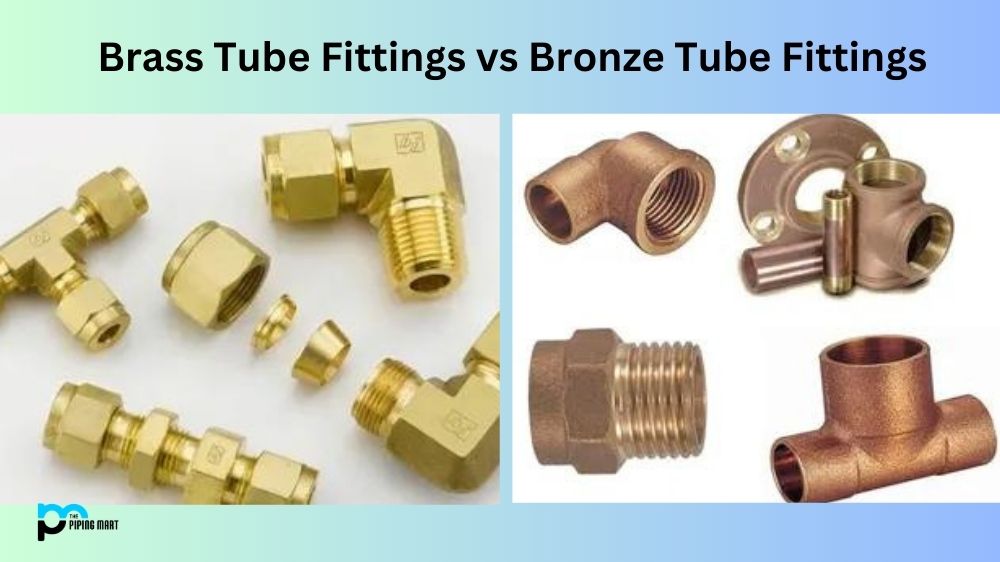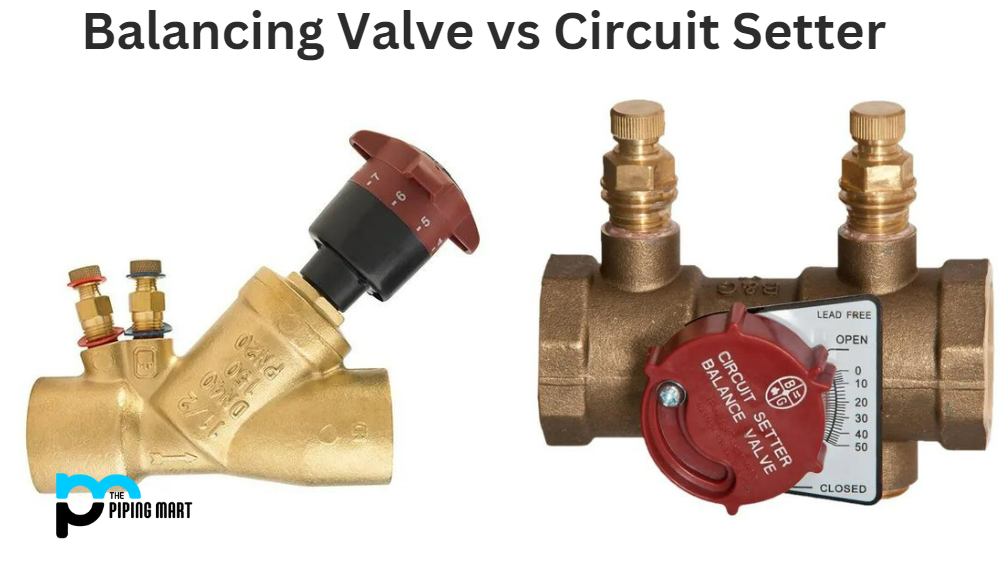If you’re interested in plumbing or any other pipeline installation, fittings are crucial in ensuring a smooth and consistent flow of liquids or gases. One of the most common fittings used in plumbing is tube fittings, with brass and bronze being popular options. Both materials can make strong and reliable fittings, but how do they differ? In this blog post, we’ll review the differences between brass tube fittings and bronze tube fittings so you can decide which is right for your specific application.
Brass Tube Fittings
Brass tube fittings are mechanical components commonly used in plumbing applications. They are designed to connect two sections of tubing or piping, often referred to as a “union”, which can be easily taken apart and reassembled. These fittings come in different shapes and sizes, including elbows, couplings, tee-unions and adapters, making them versatile for many applications. They are constructed from strong metal alloys like brass or stainless steel that offer durability and corrosion resistance, making them suitable for use in various industrial settings. Additionally, they can provide a tight seal while allowing for easy disassembly without using tools when needed.
Bronze Tube Fittings
Bronze tube fittings are speciality pipe fittings used in plumbing, fuel transfer, and other related applications. These fittings are made from an alloy of copper and tin and are renowned for their strength and durability. They come in various sizes, shapes, thread types, and pressure ratings to suit different needs. Aside from being corrosion-resistant, bronze tube fittings also boast excellent temperature tolerance of up to 500 degrees Fahrenheit. Furthermore, they’re designed for easy installation with minimal effort required for threading or soldering connections. In conclusion, these versatile pieces can help create efficient piping systems that will last through years of service!
A Comparison Between Brass Tube Fittings and Bronze Tube Fittings
Composition:
Brass tube fittings are made of an alloy mainly consisting of copper and zinc. This composition gives brass a yellowish-golden colour and makes it highly corrosion-resistant. On the other hand, bronze tube fittings are an alloy made of copper and tin. Bronze is reddish-brown in colour and offers excellent strength and durability.
Strength and Durability:
When it comes to strength and durability, both materials offer great performance. However, bronze tube fittings are typically stronger than brass tube fittings. Brass is softer than bronze, making it more malleable and easier to form into different shapes. Nonetheless, brass is still very strong, and when combined with other elements like manganese and aluminium, it can also offer excellent durability.
Application:
The type of application plays a significant role in determining which material to use. For example, brass tube fittings are more suitable for applications that involve water or alkali solutions. It’s because brass is resistant to corrosion and scale deposition. On the other hand, bronze tube fittings are ideal for seawater applications because they are highly resistant to corrosion and fouling. Also, bronze is widely used in marine applications because it offers excellent strength and ductility.
Price:
The price is another factor to consider when choosing between brass and bronze tube fittings. Brass is typically a more affordable option than bronze. Brass is also lightweight, making transporting and installing it more cost-effective. However, bronze tube fittings offer more longevity and excellent strength, which makes it worth the cost in the long run.
Maintenance:
Finally, maintenance plays an important role in the lifespan of your fittings. Both brass and bronze tube fittings require similar maintenance, cleaning and regular inspection. Brass fittings are vulnerable to oxidation and corrosion; cleaning and inspecting them often to ensure longevity is essential. Bronze fittings, on the other hand, are highly durable and require minimal maintenance. They can withstand harsh conditions and still offer reliable performance.
Conclusion:
We’ve examined the differences between brass and bronze tube fittings. Both materials are strong, reliable, and durable. Which one you should use depends on the application and your strength, longevity, and cost requirements. Brass is a more affordable, lightweight option ideal for applications involving water or alkali solutions. Bronze, on the other hand, is highly resistant to corrosion and fouling, making it perfect for seawater applications. Regardless of your choice, it’s always essential to perform regular maintenance to ensure the fittings last long.

A passionate metal industry expert and blogger. With over 5 years of experience in the field, Palak brings a wealth of knowledge and insight to her writing. Whether discussing the latest trends in the metal industry or sharing tips, she is dedicated to helping others succeed in the metal industry.




